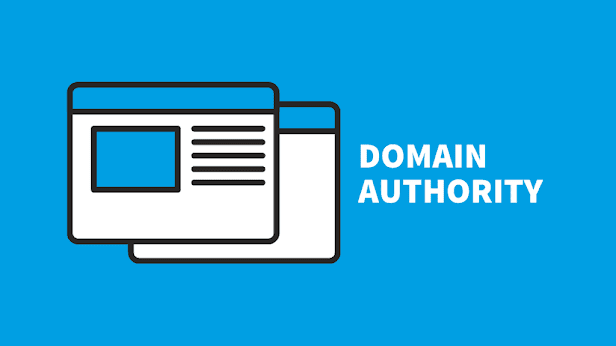Domain Authority Check: Boost Your Website's Credibility and Ranking
In the world of digital marketing and SEO, Domain Authority (DA) is a crucial metric that helps you understand the credibility and ranking potential of your website. Created by Moz, Domain Authority predicts how well a website will perform in search engine results pages (SERPs). This article will explore the importance of Domain Authority, how it is calculated, and how you can check your site’s DA to improve your online presence.
What is Domain Authority?
Domain Authority (DA) is a score ranging from 1 to 100 that estimates a website’s ability to rank on search engines like Google. The higher the DA score, the more likely the site is to rank well in search engine results. This score is based on multiple factors, including linking root domains, the quality and quantity of backlinks, and overall website performance.
Domain Authority is not a direct ranking factor used by Google but serves as a comparative metric that helps you gauge the strength of your domain against competitors.
Why is Domain Authority Important?
Predicts Search Engine Performance: DA gives you a snapshot of how likely your website is to perform in search results compared to other sites.
Competitive Analysis: Understanding your DA helps you benchmark your site against competitors and identify areas for improvement.
Influences Partnerships and Collaborations: A higher DA can make your website more attractive to potential partners, advertisers, and collaborators looking for authoritative sites to work with.
Identifies Backlink Opportunities: By analyzing your DA, you can identify the quality of backlinks you need to build to improve your score.
Helps Track SEO Progress: Regularly checking your DA allows you to monitor the impact of your SEO efforts over time and adjust your strategy accordingly.
How is Domain Authority Calculated?
Domain Authority is calculated using a machine learning model that considers multiple factors, including:
Linking Root Domains: The number of unique domains that link to your website. More unique, high-quality backlinks generally increase your DA.
Total Number of Links: The overall number of links pointing to your site, including both internal and external links.
Link Quality: The quality and relevance of backlinks. Links from high-authority sites have a more positive impact than those from low-quality sites.
Site Structure and SEO Optimization: Well-structured websites that follow SEO best practices tend to have better DA scores.
MozRank and MozTrust: These are metrics used by Moz that assess the quality of links and the trustworthiness of your site, contributing to your DA score.
The DA score is relative, meaning it’s easier to improve from a score of 20 to 30 than from 70 to 80. It’s important to focus on building high-quality backlinks and improving overall site performance rather than chasing a perfect DA score.
How to Check Your Domain Authority
Checking your Domain Authority is easy, thanks to various online tools that provide instant results. Here are some popular ways to check your DA:
Moz Link Explorer: The original tool for checking Domain Authority, Moz Link Explorer allows you to enter your domain and see your DA score, linking root domains, inbound links, and more. It’s one of the most reliable sources for DA metrics.
Ahrefs Domain Rating (DR): Although not identical to DA, Ahrefs’ Domain Rating (DR) is another excellent metric that measures your site’s backlink profile and overall strength in SERPs.
SEMrush Authority Score: SEMrush provides an Authority Score that reflects your site’s SEO performance, including backlink analysis and organic search traffic.
Small SEO Tools: Free tools like Small SEO Tools offer quick DA checks along with other helpful SEO metrics, making it accessible for beginners.
Website SEO Checker: This tool provides a comprehensive report on DA, page authority, backlinks, and other critical SEO factors.
How to Improve Your Domain Authority
Improving your Domain Authority requires consistent effort in several areas:
Build High-Quality Backlinks: Focus on acquiring backlinks from authoritative, relevant websites. Guest posting, content marketing, and broken link building are effective strategies.
Create Valuable Content: Produce high-quality, engaging, and informative content that attracts natural backlinks. Content that provides value is more likely to be shared and linked to.
Optimize On-Page SEO: Ensure your site follows best SEO practices, including proper use of keywords, meta tags, alt text for images, and structured URLs.
Improve Internal Linking: Use internal links strategically to boost the flow of link equity throughout your site, enhancing the authority of individual pages.
Fix Technical SEO Issues: Resolve technical issues like broken links, slow page speed, and poor mobile performance that can negatively impact your SEO and DA.
Monitor Your Link Profile: Regularly audit your backlink profile to remove spammy or low-quality links that could harm your DA.
Final Thoughts
Domain Authority is a valuable metric that provides insights into your website’s strength and ranking potential. Regularly checking your DA and implementing strategies to improve it can help you achieve better visibility, drive more traffic, and establish credibility in your niche. Remember, while DA is important, it should be viewed as part of a broader SEO strategy that focuses on delivering quality content, a great user experience, and continuous optimization.
Start checking your Domain Authority today to understand where your site stands and what you can do to elevate your online presence!
